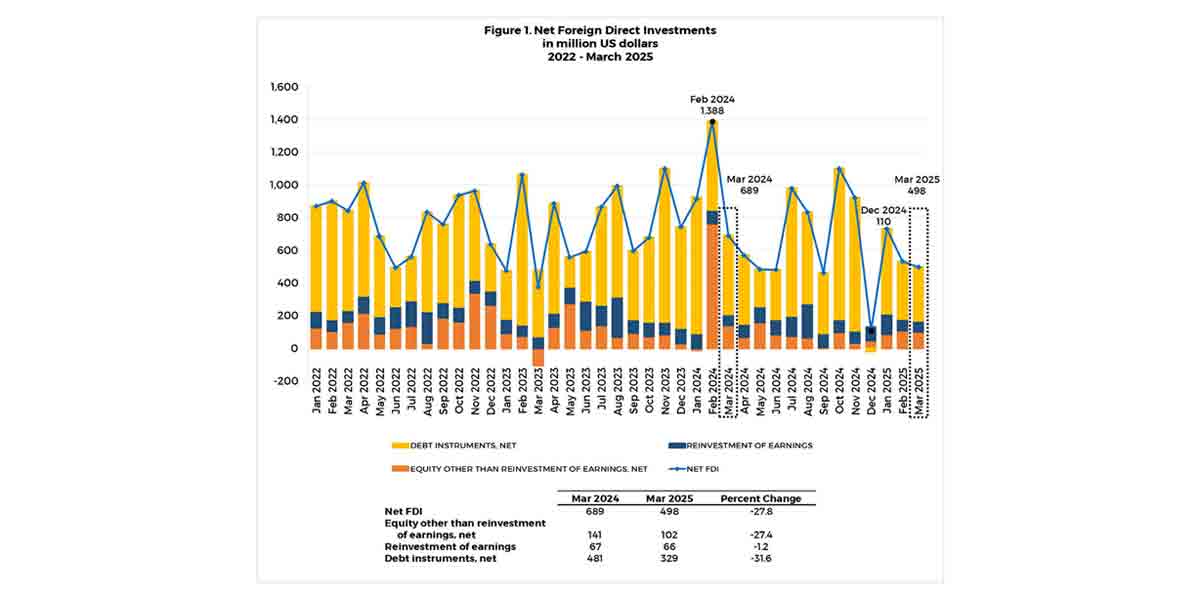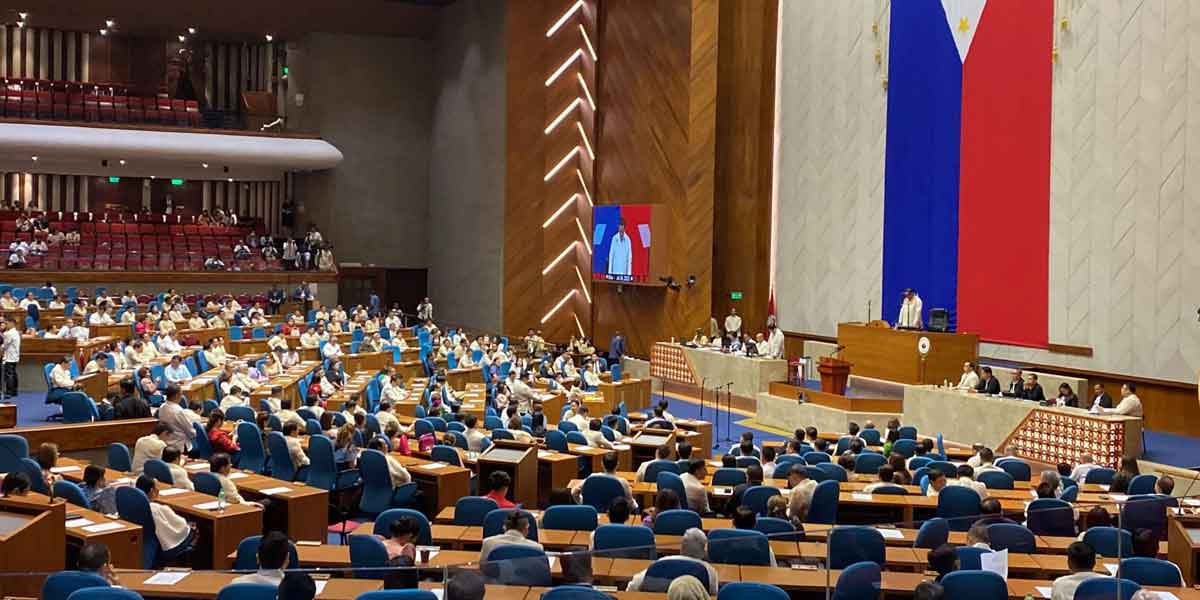
By Francis Allan L. Angelo
The Philippines has taken a landmark step to address long-standing gaps in early childhood development with the signing of Republic Act No. 12199, or the Early Childhood Care and Development (ECCD) System Act, a new law aimed at improving education, nutrition, and health outcomes for children from birth to age five.
Signed into law on May 8, 2025, the ECCD System Act comes in response to years of alarming data on the well-being of Filipino children, most notably from the study “Behind the Slow Start: An Assessment of Early Childhood Care and Development in the Philippines,” authored by Dr. Valerie Gilbert T. Ulep and his team at the Philippine Institute for Development Studies (PIDS) in collaboration with the Second Congressional Commission on Education (EDCOM II).
“This legislation marks a crucial step in ensuring that every Filipino child has the support and opportunities they need to thrive,” said Ulep, senior research fellow at PIDS. “It is a powerful reminder of what we can achieve when evidence guides our decisions.”
ECCD Crisis
The PIDS study paints a sobering picture: millions of Filipino children are not reaching their full development potential due to persistent malnutrition, poor access to quality pre-primary education, and fragmented government services.
Nearly one in three Filipino children under age five is stunted, a sign of chronic malnutrition that limits cognitive development, impairs school performance, and undermines future productivity. Despite economic growth, stunting in the country has declined at just 1% annually over the past 30 years, far slower than in neighbors like Vietnam and China.
The economic toll of this malnutrition is staggering, with an estimated annual cost of PHP 174.4 billion due to lost productivity and healthcare needs.
At the same time, nine out of 10 children are unable to read proficiently by the end of primary school, a crisis of learning poverty that places the Philippines among the poorest performers in Southeast Asia. In 2022, only 20% of children aged 3 to 4 were enrolled in pre-kindergarten, and just 23% accessed government feeding programs.
Participation in early education is marked by extreme inequality. Children from wealthy households are more likely to attend daycare centers, receive better nutrition, and perform well on cognitive tests. In contrast, poor children suffer from lower access, fewer learning opportunities at home, and worse health outcomes from birth.
“This is not just a developmental issue, it is a moral one,” Ulep said. “These inequities entrench intergenerational poverty.”
Fragmented Governance, Supply Gaps
The study identifies significant weaknesses in the ECCD system’s governance and implementation.
“There is duplication of roles, confusion about mandates, and lack of vertical coordination between national and local government units,” the report states.
The ECCD Council, a multi-sectoral body responsible for program coordination, is under-resourced and suffers from unclear authority relative to other agencies like the Department of Social Welfare and Development (DSWD) and Department of Education (DepEd). At the local level, implementation varies widely based on political will and local leadership priorities.
Exclusive control by mayors or barangay officials often results in disorderly and inconsistent ECCD services. In contrast, institutionalized governance—such as in Batanes, where ECCD planning is done collaboratively through local councils—shows stronger outcomes, better coordination, and higher morale among childcare workers.
Service delivery is also hampered by infrastructure and human resource deficits. The country lacks an estimated 33,000 daycare centers out of the 96,000 needed, and only one-third of the required child development workers (CDWs) are currently in place.
Nationally, the average number of children per CDW is 19, nearly double the recommended 1:10 ratio. In urban areas, this spikes to 30 children per worker. Compounding the problem, many CDWs are only high school graduates, and compensation varies widely depending on the locality.
RA 12199: Key Features and Policy Shifts
RA 12199 seeks to overhaul the ECCD system through structural reforms grounded in the PIDS-EDCOM II findings. Key features of the new law include:
- Creation of ECCD Offices in every province, city, and municipality, empowering local government units (LGUs) as primary implementers.
- Strengthened inter-agency coordination through a revitalized ECCD Council, which will work across the sectors of education, health, nutrition, and social welfare.
- Standardization and professionalization of CDW salaries and qualifications to improve workforce quality and attract skilled personnel.
- Mandatory inclusion of ECCD performance indicators in the Seal of Good Local Governance, incentivizing LGUs to prioritize early childhood care.
- Dedicated roles for national agencies: The Department of the Interior and Local Government (DILG) will monitor LGU compliance and build capacity; DepEd will promote ECCD careers and lead curriculum development; DOH, DSWD, CHED, TESDA, and the National Nutrition Council will manage sector-specific programs such as feeding, health checkups, and emergency services.
Inclusive access for children with disabilities is a priority of the law, as is alignment with the Universal Health Care Act to ensure integrated and holistic child development.
Recommendations
The study outlines urgent steps for government and civil society to support the new law’s rollout:
- Increase public investment in early education, primary health care, and nutrition, with more equitable allocation across LGUs.
- Pilot innovative financing mechanisms like vouchers or block grants to improve access for the poorest families.
- Roll out targeted behavioral change campaigns to bridge the gap between parental knowledge and practice in nutrition and early learning.
- Strengthen data systems and monitoring tools to assess program effectiveness and ensure accountability at all levels.
Research-to-Policy
RA 12199 builds on two decades of incremental policy development.
The ECCD Act of 2000 first established a multi-agency system for children aged 0 to 6. This was refined by the Early Years Act of 2013, which delineated roles across age groups and aimed to smooth the transition to kindergarten.
Other supporting laws include the Kindergarten Education Act (2012), the First 1,000 Days Law (2018), the National Feeding Program Law (2018), and the Universal Health Care Act (2019), which together promote health, nutrition, and education during early childhood.
Despite these frameworks, implementation remained weak—until now.
For Ulep and his co-authors, the passage of RA 12199 is a validation of evidence-based policymaking.
“This new law highlights how research can directly inform policies that impact lives,” he said.
He credited the successful partnership between PIDS and EDCOM II, whose advocacy helped transform the study’s findings into legislative reform.
“This is what we hope to see more of—research that moves the needle,” Ulep said.
As the Philippines turns a new page in early childhood development, advocates stress that sustained implementation, adequate funding, and political will remain essential.
Without these, they warn, even the most well-crafted law will struggle to deliver on its promise to the country’s youngest and most vulnerable citizens.




















